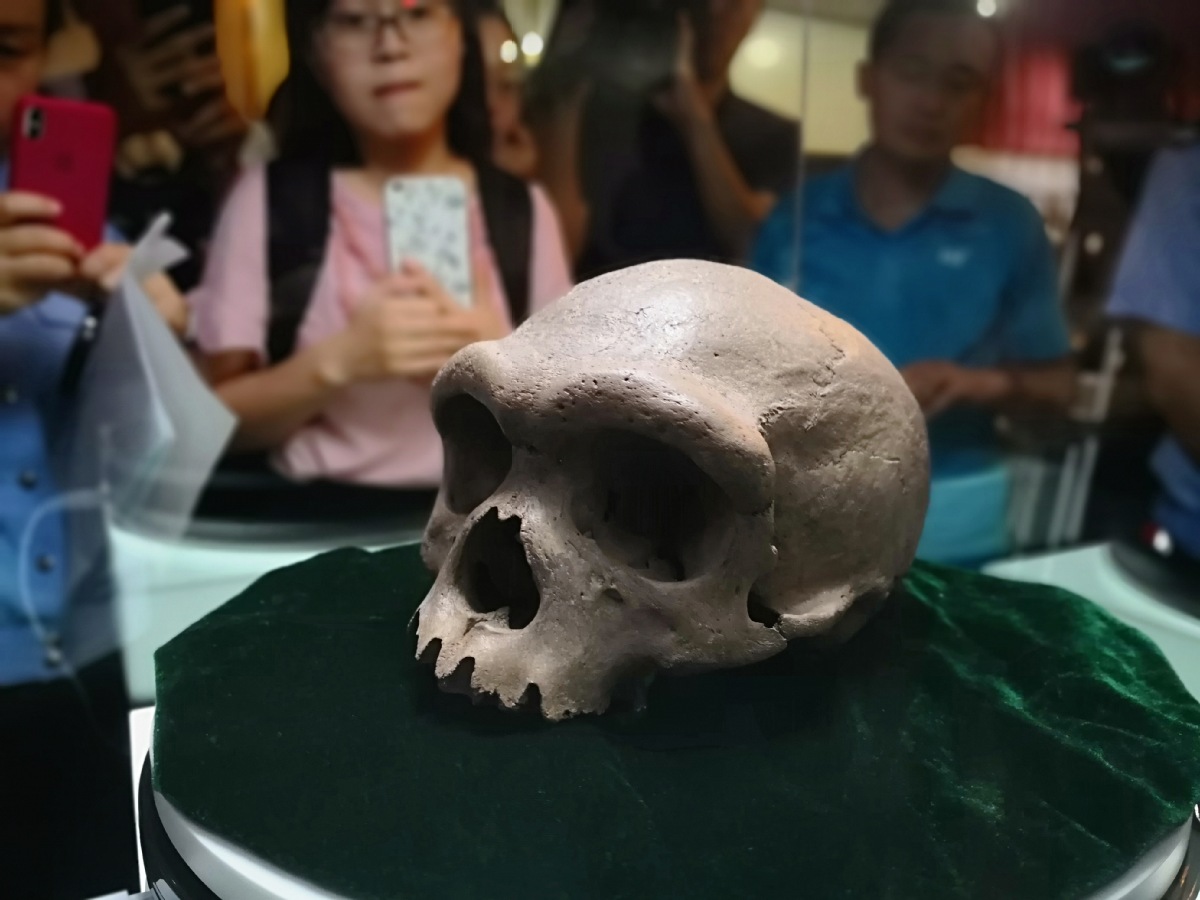Fossil skull may hold answers to evolution of human species
By Zhang Yu in Shijiazhuang | China Daily | Updated: 2018-09-18 09:13

A fossil skull of Homo heidelbergensis, an extinct species of humans, was believed to have been discovered in Northeast China and is considered to be one of the most complete fossils of ancient humans ever found, experts said.
This is the first discovery of a Homo heidelbergensis fossil in Asia, Ni Xijun, a researcher at the Institute of Vertebrate Paleontology and Paleoanthropology at Chinese Academy of Sciences, was quoted as saying on the website of Hebei GEO University.
The skull has an interesting history. It was handed over to professor Ji Qiang at Hebei GEO University by an acquaintance, a farmer, who wanted to ensure the fossil would be safe. The farmer said that the skull had been dug up by a co-worker of his grandfather back in 1933 in the sediment of Songhua River in Harbin, Heilongjiang province.
Realizing the skull was unusual, the grandfather hid it from the Japanese army in a well. As he was dying, he told his son and grandson about it. The farmer and his father said they thought about donating the specimen to the country but didn't know how to do that until he met with Ji in August last year.
Ji said the skull is thought to be at least 200,000 to 400,000 years old.
It has important scientific value for studying the origin of humans, considering Homo heidelbergensis is the common ancestor of Homo sapiens, Homo neanderthalensis and Denisovan, Ji said.
"The fossil skull provides a new way to understand the history of human development and evolution," he said.
According to the university's article, Homo heidelbergensis fossils found in Africa can be dated to 125,000 to 300,000 years ago, and those in Europe to 200,000 to 600,000 years ago.
In the past, fossils that resemble the features of Homo heidelbergensis were also found in Asia, but the fossils could not be positively identified because they were poorly preserved, the article said.
After a visit to Harbin in July, Ji is now assembling a research team to investigate the site where the skull was discovered.
The university will support Ji and his team in studying the skull and doing related research in cooperation with international institutions, said Wang Fengming, president of the university.
Zhang Yaodong contributed to this story.
























